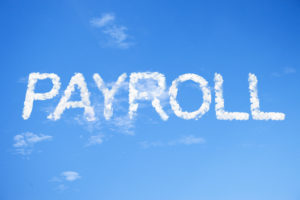10 Common Tax Filing Mistakes

As this year’s tax deadline approaches, we though it would be a good idea to share 10 common filing mistakes. The American Institute of Certified Public Accountants (AICPA) reminds taxpayers of 10 of the most common mistakes made each year by individual taxpayers on their federal tax returns. These avoidable errors can affect your tax bill, delay the processing of your return and draw the attention of the Internal Revenue Service.
Mistake #6: Failing to Document Charitable Donations
For charitable donations of $250 or more, written acknowledgment from the charity is required. A canceled check is not sufficient. If your gift was one of property rather than cash, the acknowledgment must describe the property. When your noncash contribution exceeds $500, you also are required to file IRS Form 8283, Noncash Charitable Contributions, giving details of the donation.
Mistake #7: Omitting Social Security Numbers of Dependents
You MUST include on your return the Social Security number for all dependents. Also, to claim a child or dependent care credit, you must complete Form 2441 and indicate the care giver’s name, address and taxpayer identification or Social Security number.
Mistake #8: Making Math Miscalculations When Filing
Review your return to make sure that your math is correct. If you find a mistake, remember to recalculate other figures that are affected by the error.
Mistake #9: Failing to Calculate the Alternative Minimum Tax (AMT)
With every passing year more and more taxpayers discover, often to their great surprise, that they are subject to the alternative minimum tax (AMT). But many of the 16 million taxpayers who are predicted to become subject to the AMT for the first time over the next two years will not fill out the AMT form 6251 because they think it is only applicable to the very wealthiest individuals and couldn’t possibly apply to them. The result can be a nasty note from the IRS informing them they owe more money and, of course, interest on the underpayment.
Mistake #10: Assuming Itemizing Deductions Will Reduce Tax Bite the Most
Many taxpayers assume that itemizing deductions is going to result in the lowest federal obligation. However, that may not be true. For example, if you’ve paid down most of the interest on your home mortgage, which is the largest deduction most filers have, you may be better off taking the standard deduction. The standard deduction increases each year because it’s indexed for inflation. For 2006 returns, the standard deduction for married taxpayers filing jointly is $10,300, and for single it is $5,150.

We hope you found this article about “10 Common Tax Filing Mistakes” helpful. If you have questions or need expert tax or family office advice that’s refreshingly objective (we never sell investments), please contact us or visit our Family office page or our website at www.GROCO.com. Unfortunately, we no longer give advice to other tax professionals gratis.
To receive our free newsletter, contact us here.
Subscribe to our YouTube Channel for more updates.
Considerately yours,
GROCO, GROCO Tax, GROCO Technology, GROCO Advisory Services, GROCO Consulting Services, GROCO Relationship Services, GROCO Consulting/Advisory Services, GROCO Family Office Wealth, and GROCO Family Office Services.

Alan L. Olsen, CPA, Wikipedia Bio

Proud sponsor of the AD Show.

Not Your Mother’s Pants!
What happens when you mix a charitable auction with a famous pair of pants from an iconic movie worn by a legendary international superstar? A six-figure donation to cancer research and a lot of very happy people… On November 2, 2019, the Estate of Olivia Newton-John listed several items on Julien’s Auction. The famous actor…
New Guidelines for Deferring Payroll Tax Obligations During COVID-19 Disaster
New Guidelines for Deferring Payroll Tax Obligations During COVID-19 Disaster New guidelines for deferring payroll tax obligations during COVID-19 disaster. On August 8, 2020, President Trump issued a Presidential Memorandum (Notice 2020-65) directing the Secretary of the Treasury to use his authority pursuant to section 7508A of the Internal Revenue Code to defer the withholding,…
Should I Move Out of California Due to the Proposed Wealth Tax?
Should I Move Out of California Due to the Proposed Wealth Tax? Why now? I am currently getting a lot of questions from individuals wanting to change their state tax status to California non-resident due to ab2088. Ab2088 known as the Wealth Tax, is a bill going through the California legislation process. “This bill would…
COVID-19 Stimulus Round 4, which plan will go into effect?
COVID-19 Stimulus Round 4, which plan will go into effect? Many people have been looking forward to the government’s next round of COVID-19 stimulus– sadly, the fourth wave of COVID-19 relief and the laws around it have become highly politicized and appear to be caught in gridlock between the House and Senate. While both Republicans…




